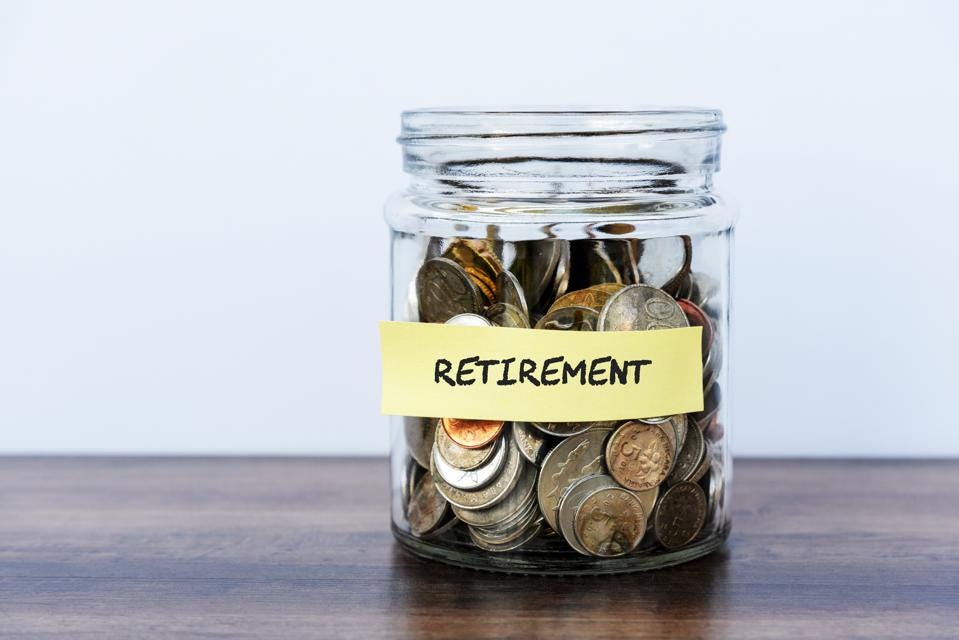
Adult life is bookended by your 20s on one end and your retirement on the other. It might be hard to imagine the latter from the perspective of the former, but what you do at the starting gun will have a big say in your condition at the finish line.
If you don’t save for retirement in your 20s, you won’t get started until your 30s — or maybe ever. In the modern era, where saving and investing are accessible to the masses no matter the budget, there’s simply no excuse for forfeiting an entire decade of compound growth.
If you’re young, it probably feels early to think about retirement, but it will be late before you know it — here’s how to get started in your 20s.
Change Your Perspective on Long-Term Savings
If you’re young and just starting out and it feels like retirement is a distant concern, that’s because it is. Lectures from older people about how fast it goes by and how they wish they had started sooner will never make paying rent feel less immediate if you’re young and broke. So instead of looking at it as saving for retirement, look at it as purchasing choices — so a future version of yourself isn’t still struggling to pay the rent decades from now.
“Young adults in their 20sjust embarking on their working lives, may find it hard to relate to retirement and to find the motivation to save for it,” said Tanya Peterson, vice president of brand for Freedom Financial Network. “However, they can relate to the idea of options — options to do what they want in life when they want to do it.”
If You Can Only Be One Thing, Be Consistent
Don’t get distracted by focusing on a fixed goal like saving $100 every month. Instead, focus on putting away some portion of your earnings on a set date and never missing it no matter how little you have to contribute. You have all the time in the world to compound your contributions, but if you don’t make saving a habit now, you probably never will.
“Many experts suggest 10%,” Peterson said. “Others suggest 20%-25%. Whatever it is, do it consistently. Even if it is only a small amount at this point, those in their 20s will be well-served to get in the habit of saving regularly.”
Nurture Your Credit To Make Saving Possible
Most 20-somethings are simply not going to have a lot of money to build a nest egg — but they can build a strong financial foundation by shoring up their credit. If you blow up your credit in your 20s, you’ll spend your 30s rebuilding it while settling for expensive loans or deferring dreams like owning a home — all of which makes saving for retirement next to impossible. Follow that path, and you’ll be stumbling into middle age with bupkis before you know it.
“If you’re working to build a nest egg for retirement, building your credit score is imperative,” said Michael Broughton, co-founder and CEO of Perch, a credit-building app backed by Jay-Z. “Adequate credit allows potential homebuyers to purchase homes at a fair interest rate and a reasonable down payment.”
Automating Your Nest Egg: Save It Before You See It
One of the big keys when you’re first starting out is to get in the habit of slicing off a portion of every paycheck and beaming it into savings before it ever hits your checking account — checking accounts are where retirement savings go to die. This kind of financial automation is not hard nowadays, and it forces that all-important consistency.
“Today, many banks and credit unions will let you arrange automatic withdrawal from your checking account to a savings account,” said Peterson. “See if your employer can do an automatic deposit of a portion of your payment into your savings account.”
Prioritize Jobs With 401(k)s, and When You Find One, Max It Out
In the post-pension era, there is simply no better way to get an early jump on saving than by participating in an employer-based 401(k) that provides a company match. If you’re just entering the workforce or searching for a job in your 20s, attach as much importance to a 401(k) plan as you would to a good salary. If you already have a 401(k), take advantage of it to the fullest by maxing out the percentage that your company will match at almost any cost except eviction.
“If a young person has access to a 401(k) at work, he or she should take advantage of it and start saving today,” said David Frederick, director of client success and advice at First Bank. “This young person should put in at least enough to maximize any employer match.”
“Today, many banks and credit unions will let you arrange automatic withdrawal from your checking account to a savings account,” said Peterson. “See if your employer can do an automatic deposit of a portion of your payment into your savings account.”
Prioritize Jobs With 401(k)s, and When You Find One, Max It Out
In the post-pension era, there is simply no better way to get an early jump on saving than by participating in an employer-based 401(k) that provides a company match. If you’re just entering the workforce or searching for a job in your 20s, attach as much importance to a 401(k) plan as you would to a good salary. If you already have a 401(k), take advantage of it to the fullest by maxing out the percentage that your company will match at almost any cost except eviction.
“If a young person has access to a 401(k) at work, he or she should take advantage of it and start saving today,” said David Frederick, director of client success and advice at First Bank. “This young person should put in at least enough to maximize any employer match.”


























